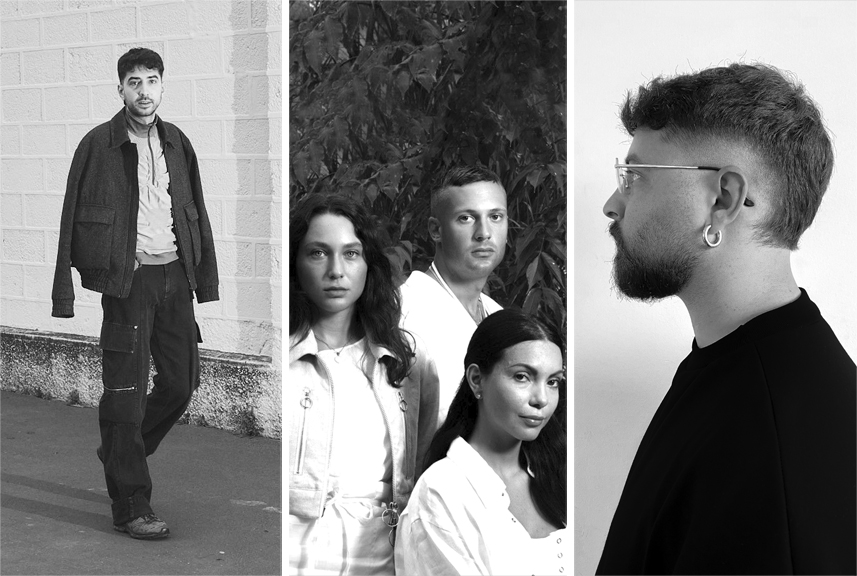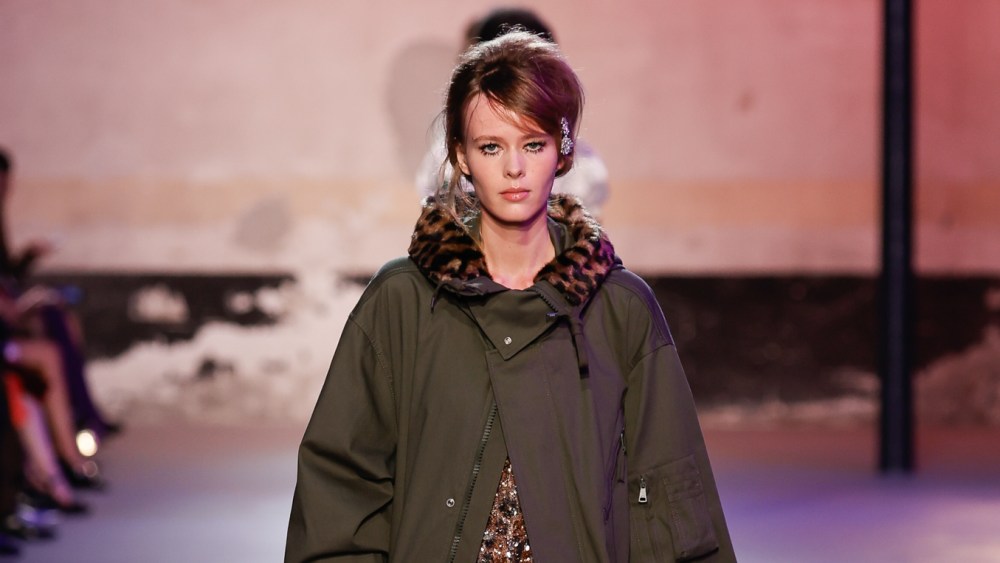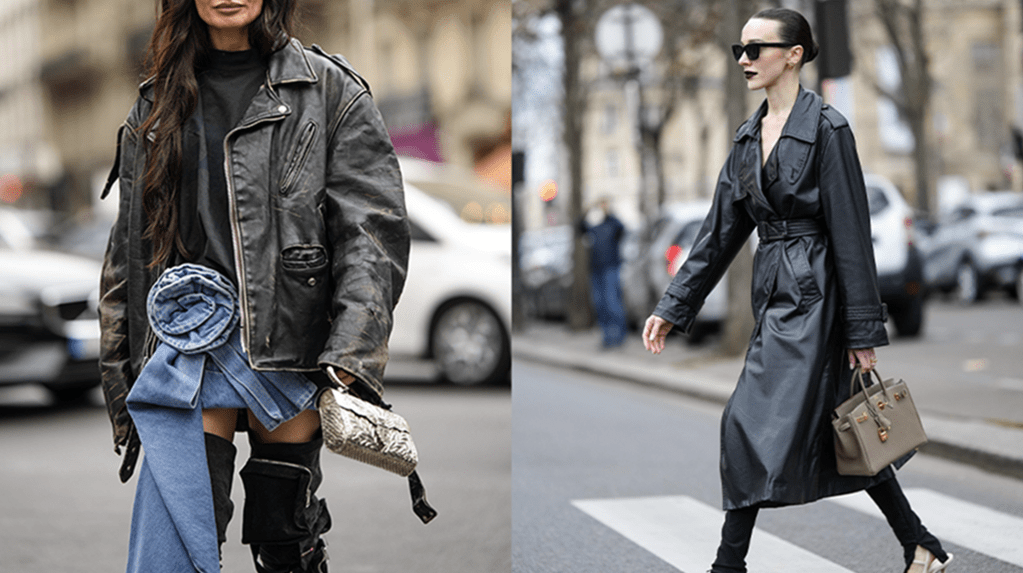MILAN — Clothes telegraphing a sense of protection and refuge, expressing a simple yet conscious contemporary lifestyle and transcending gender and seasonality — these are the core values of three emerging Italian brands making their official debuts on the Milan Fashion Week calendar during Men’s Fashion Week. Here, a closer look at the new names in town.
Domenico Orefice

Streetwear, sportswear and tailoring converge in the hybrid world of Naples-born designer Domenico Orefice.
A Polimoda graduate, he launched his namesake brand in 2022, presenting his first efforts during Pitti Uomo last June and Dubai Fashion Week in October.
At his Milan Men’s Fashion Week debut, Orefice will unveil another non-gender and nonseasonal collection, cryptically dubbed “A1 R1 25” in a nod to mountaineering and the scales of difficulty and risk in climbing.
He said these references informed the lineup, which he conceived to adapt to different climates and latitudes with its focus on protective gear. In truth, with its oversize and baggy proportions, distressed effects and raw attitude, the dark-tinged lineup points more to a post-apocalyptic scenario rather than evoking hiking trips.
“The garments are intended to be a sort of shell, representing a sense of protection and refuge: they accompany us in the world like an armor but at the same time allow us to explore nature,” Orefice elaborated.

The designer offers the new A1 parka as a key piece, available in two different types of nylon developed by Italian company Gruppo Cinque and combining high performance with waterproof properties. The R1 sweater with a padded lining, extra-long vests full of pockets and cargo pants in different lengths add to the range, which also plays with layering and matte and shiny finishes.
As an emerging designer, Orefice admitted that the main challenges he’s trying to navigate are developing all samples in-house — which enables him to have full control over his collection and ensure his creative freedom — and to keep up with the rapid pace of the industry.
“That’s why I believe in annual collections and a slower fashion based on preorders, with occasional capsule lines developed with leftover fabrics to drop during the year,” he said. Retailing at between 160 euros and 3,000 euros, the Domenico Orefice pieces are available at the brand’s online store.

The designer hopes that his Milan debut will draw visibility to the label, which he believes doesn’t have a typically Italian aesthetic, but he’s confident it can carve out its own space in the domestic market. The presentation to be held at Fondazione Sozzani on Friday is set to display the collection via a special installation highlighting the contrasts between high-altitude nature, urban landscapes and digital interventions.
Noskra

Serendipity was at play when Andrea Lonigro formally introduced his men’s, but unisex-leaning, streetwear brand Noskra in 2020.
Relocating to Milan from the southern Italian town of Bari to study visual merchandising at the IED fashion school amid frustration with struggling to chart his own path in his hometown, Lonigro discovered a penchant for creating fashion rather than styling it.
Through his professor, Bav Tailor, a fashion sustainability advocate who runs her own brand, he joined StudioPuntoZero, a Milan-based company specializing in creative consultancy, prototyping and manufacturing for fashion brands.
Experimentation was part of the day-to-day job and Lonigro leaned on it, feeling a mounting desire to have a voice of his own.
“I’ve always loved clothes. I started teasing and releasing some garments in 2020 and we got positive feedback, which triggered us to do it seriously,” the brand’s founder said. The move landed Noskra — a name combining the Italian word for our, “nostra,” and the Russian expression for guiding light, “kenaz” — a few big international stages — the first full-fledged post-pandemic edition of Pitti Uomo in January 2022 and Revolver in Copenhagen.
Hinged on key streetwear tropes with a functional bent, as in parkas and cargo pants, field jackets and sweaters, Noskra tries to elevate casual garb via high-end and sustainable fabrics, almost always certified for their eco-bent.
“The main concept is sartorial streetwear. I was lucky enough to work at the [StudioPuntoZero] atelier and train my skills and manufacturing prowess,” Lonigro said. As such, translating his inclusive vision of streetwear whereby the same garment can be reinvented in different ways and sported by men and women alike turned out to be easier. Cue Noskra’s bestselling item: a side-zippered pant that can be styled into a skirt.
The fall collection follows the same rule book with oversize proportions for parkas, wide-leg, mixed-media pants, utilitarian bomber jackets with detachable sleeves and bulky cargo pants with 3D pockets.
“It’s probably the most mature collection to date,” Lonigro said. “We never want to align with trends, we rather try to push our identity and ideas forward.”
Quite minimalist by streetwear’s typically louder standards, the collection includes a print section, in black and white, inspired by brutalist architecture, which is echoed in swirling brushstrokes. Graphics are developed in-house by Lonigro’s brother, Gianluca. They appear on shirts and cargo pants, as well as zip jackets.

The brand is making its debut as part of Milan Fashion Week’s official schedule this season, hosting a presentation on Monday. It will feature a digital installation by Mariano Franzetti and Nicola Pantano. A party is to follow led by music performances including by Onoe Caponoe, a London-based musician.
Noskra is available at the brand’s e-commerce, as well as at the 2Face Concept Store boutique in Barcelona, Spain, with prices ranging from 120 euros for logoed T-shirts and 1,300 euros for parkas.
ViaPiave33

The brainchild of siblings Alessandro and Francesca Spaggiari with Elisa Bettella, ViaPiave33 defies definitions. Based in Milan, the multidisciplinary project launched last year currently includes garments, accessories as well as body care and home decor, all conceived with the mission of promoting a simple yet conscious contemporary lifestyle based on a healthy relationship between nature and technology.
“We come from a more artistic background. We didn’t study fashion design and for this reason we had to learn a lot from the people we started working with,” said Francesca Spaggiari. “But we had a clear vision since the beginning and that helped to know exactly what we wanted to say. We were always fascinated by well-done products and objects, so we found in fashion a platform that allows us to express a 360-degree vision of life and to distill it into a product, a styling or an image.”
For fall 2024, the trio looked at wintry landscapes and cold temperatures to explore a sense of intimacy and protection via a gender-adaptive collection of casual pieces. These are an evolution of previous efforts as the founders don’t believe in embracing seasonal trends but rather build on wardrobe archetypes crafted from deadstock organic fabrics, updating their clean aesthetic with little tweaks.

Puffy, comfy volumes of outerwear and hoodies are juxtaposed to lean leisurewear items and underwear-inspired pieces, while novelties include handmade knits crafted from mohair wool yarns and worked in an airy weave, which Bettella believes to add “a feeling of intimacy to a piece made from a fabric originally meant to cover and keep you warm.”
The brand’s color palette so far confined to black and white tones has also been expanded to a pale green shade obtained from a natural dye process, which amplifies the sense of gentleness and coziness the trio wanted to channel.
“As an emerging brand, challenges are our bread and butter,” said Bettella about the overall creative process. “It’s not easy to put everything together and to do it in an interesting way. We live in a very accelerated digitalized world so it is a big challenge to manage all the aspects that a contemporary brand needs. We are trying to do it in our own way, trying to maintain the pace but to slow down a little bit at the same time to focus on what really matters. We try to find meaningful, intelligent solutions and to offer them in a beautiful way.”
The collection will be presented with an immersive installation at Fondazione Sozzani on Sunday. Alessandro Spaggiari teased the format to be “natural and simple: it will talk about nature and technology, offering a moment of distraction from the accelerated life we are all living.”
The set design will evoke a domestic place dotted with minimal furniture and simple elements, such as padded cotton, aluminum, moss and soil, among others. A handful of team and family members will model the collection while a live performance by a chef will add to the showcase.

Alessandro Spaggiari underscored that staging a physical experience for the first time and within the context of Milan Fashion Week represents a great opportunity for the brand to engage with a wider and more international audience.
“Our long-term goal is to grow and to structure our company in a healthy and organic way…to keep design, art, humanity and craftsmanship at the core of our business” and “find also the right partners and collaborators that allow us to grow while preserving our nature,” the cofounder said.
Currently available exclusively at its online store, the ViaPiave33 diverse assortment retails at between 100 euros and 900 euros and also includes candle holders, tech devices and “purification kits” comprising water, organic soap bar, a face towel and instructions to “reconnect to one’s inner-self,” especially after excessive social media usage.


